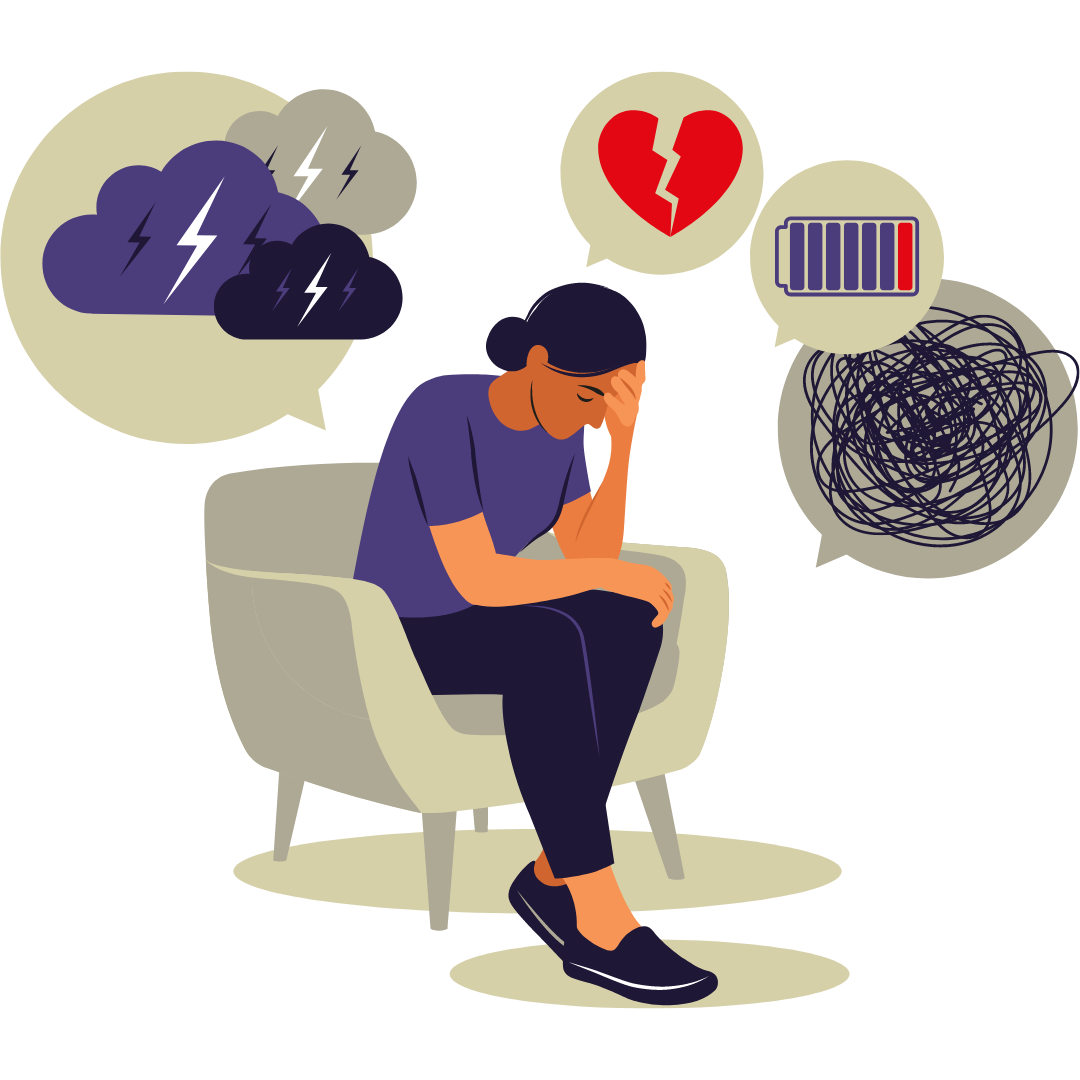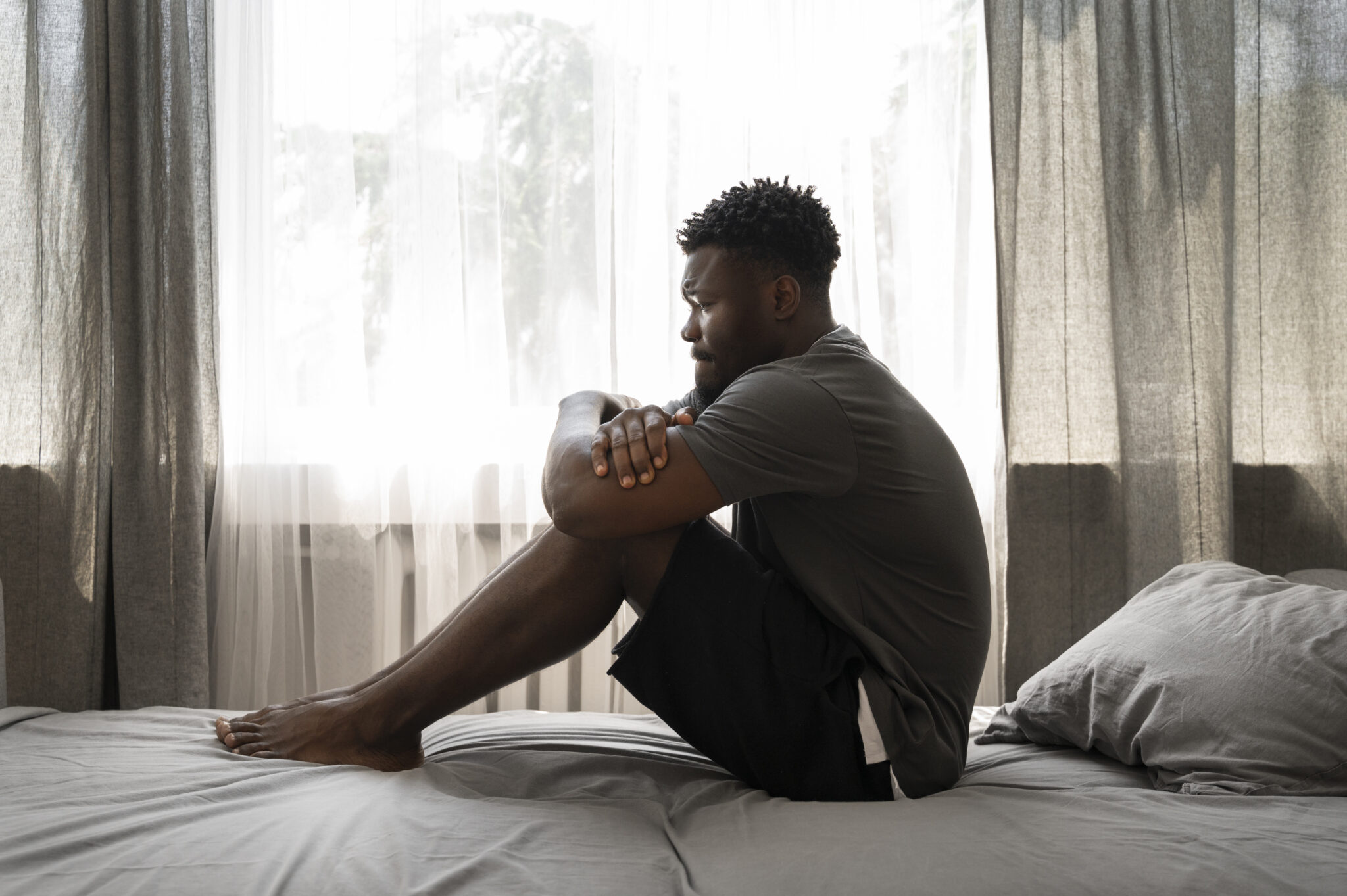Paid Treatment-Resistant Depression Research Study
Researchers at the University of Pennsylvania are conducting a study to learn more about the effects of ketamine and sleep deprivation as a treatment for depression.

Fast Facts

Have Treatment-Resistant Depression

Ages 25-50

Compensation Provided

Conducted in
Philadelphia, PA
Study Background
Help us learn more about how ketamine and sleep deprivation may affect mood and neurobiology in individuals with treatment-resistant depression.
Research has shown that both ketamine and sleep deprivation can improve mood in individuals diagnosed with depression, but we want to better understand the effects these treatments have on the brain.
Using brain imaging techniques, we hope these findings help us improve options for individuals with treatment-resistant depression.

Study Background
Help us learn more about how ketamine and sleep deprivation may affect mood and neurobiology in individuals with treatment-resistant depression.

Research has shown that both ketamine and sleep deprivation can improve mood in individuals diagnosed with depression, but we want to better understand the effects these treatments have on the brain.
Using brain imaging techniques, we hope these findings help us improve options for individuals with treatment-resistant depression.

Additional Information
The purpose of this research study is to learn more about how ketamine and sleep deprivation may affect mood and neurobiology in individuals with treatment-resistant depression. We hope the findings from this study help develop future treatments for mood disorders.
You may qualify for a study if you meet the following criteria.
Inclusion Criteria:
- Ages 25-50 years
- Have treatment-resistant depression (previous failure of at least two previous antidepressant or mood stabilizing treatments)
- If using psychoactive medications (e.g., SSRIs, benzodiazepines, glutamate modulators), willing to discontinue use for the study
- No current or past history of any serious mental illness other than depression (e.g., bipolar disorder, schizophrenia)
- No substance dependence
- No prior treatment and/or recreational use of ketamine or prior participation in another study of ketamine for depression
- No serious health conditions (e.g., dementia, cardiac disease, lung disease, kidney disease)
- No neurological disorders
- Speak English
This study requires you to sleep 4 nights at the Hospital of the University of Pennsylvania.
This study begins with a virtual screening session and an interview about your mental health. You will then be asked to complete a sleep diary for 7 days leading up to your in-person study visit.
You will then be asked to spend 4 nights at the Hospital of the University of Pennsylvania, which will consist of the adaptation night, the baseline night, the experimental night, and the recovery night. During the experimental night, you may be placed into one of the 3 following groups, where you will receive one of the following treatments:
- Ketamine infusion
- Sleep deprivation
- Control condition: sleep in laboratory + placebo infusion
After the baseline night, the experimental night, and the recovery night, you will have your blood drawn, complete a mood assessment battery, complete a cognitive task battery, and undergo neuroimaging.
As a participant, you can receive up to $1,000 for completing all study activities.
There is no cost for you to participate in our research study.
